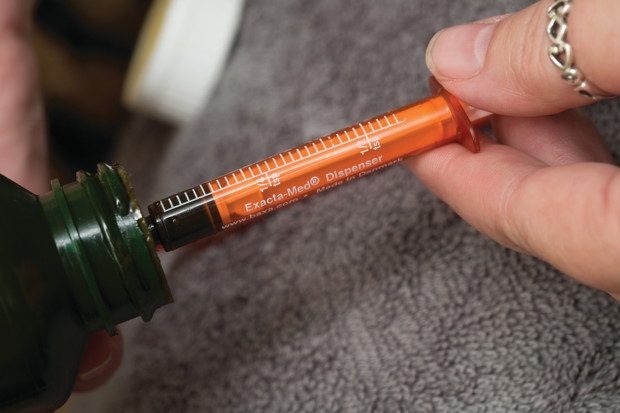
The Department of Health released guidelines for edible medical marijuana manufacturing, a long-awaited stepping stone towards getting sick patients a healthier alternative for taking the medicinal drug. Governor Christie approved edibles (but only for minors, unfortunately not for elderly patients with ailments such as lung cancer) in September 2013.
Nineteen months later, edibles are not yet available through the state’s medicinal pot program. Currently, parents of minor patients commit hours to making their own edibles at home from the dried cannabis buds available through the state’s Alternative Treatment Centers (or ATCs).
According to advocates, edible cannabis is the ideal form for administering the medicine. Typically made from a highly-concentrated oil-like tincture, edible cannabis is considered preferable to the dried flower (intended to be smoked) that’s currently available in ATCs. Edibles are purer, eliminating extraneous plant material, and contain only the essential medicinal cannabinoids, including CBD and THC. They also can be administered in exact doses; an important characteristic for a life-saving medicine. States like New York and Minnesota do not permit patients to smoke the drug, and only allow dispensaries to sell tinctures, edibles or vaporizers, which produce a clean vapor instead of smoke.
The 12-page Department of Health report, dated March 10, lists guidelines for manufacturing conditions and equipment for use in ATCs . The report also lists labeling standards, including expiration dates, directions for use and storage, ingredient lists, dosages, and packaging similar to poisons. The label must also instruct that the product is not intended for children unless authorized by a physician, and should not resemble candies or food products to prevent accidental ingestion. New Jersey’s edibles will only be in the form of tablets, capsules, drops, lozenges or syrups—as opposed to the infused brownies or cookies available in other states. It may be many months before the ATCs are able to start producing edibles; the new guidelines are only the first step towards development.
New Jersey’s Medical Marijuana Program has had a bumpy road. In the four and a half years since the program was signed into law, only three of the promised six dispensaries have opened. Critics say it’s difficult to find a doctor, and the registration process is cumbersome for both physicians and patients. The New Jersey program is significantly more expensive than other state programs, with a $200 biannual fee (New York charges a one-time fee of $50), and no assistance from health insurance to cover the medicine’s expenses, which can be up to $1,000 in cash per month.




So, here we are, a year later, and still no edibles in NJ. What’s up with that?